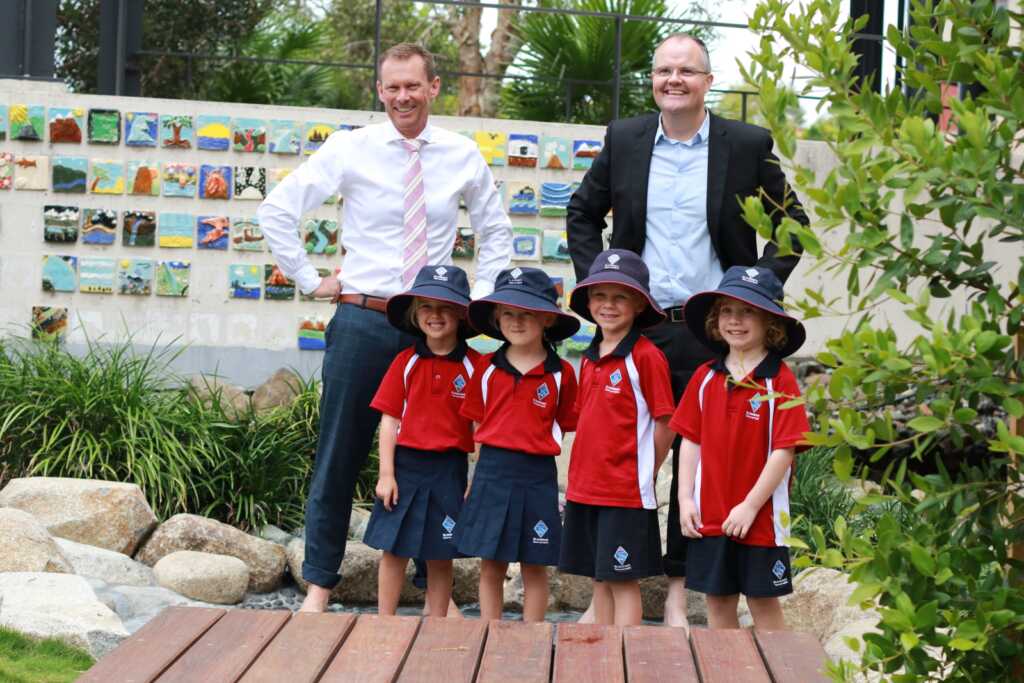From a little conversation, big things have grown at St Andrew’s Anglican College, who today opened a sensory garden thanks to a grant provided by Federal Member for Fairfax Ted O’Brien.
The idea for the sensory space, which focuses on environmental sustainability and indigenous culture, grew from a conversation between a year six teacher and a group of students two years ago.
St Andrews’ now flourishing sensory garden is just one of 11 school projects across the electorate of Fairfax that was made possible through sharing in $200,000 of Federal Government Local Schools Community Fund grants.
Member for Fairfax Ted O’Brien cut the ribbon today to declare the garden officially open, to the excitement of St Andrews’ students and teachers alike.
“I’d like to congratulate the students and teachers of St Andrews for nurturing this project to fruition,” Mr O’Brien said.
“It is absolutely delightful to see what they have created with the $19,000 of Federal Government funding.
“This garden will not only provide a calm, natural space for students to learn but will also enable a hands-on approach when it comes to sustainable land care and food production education.”
St Andrews Anglican College Deputy of Primary Years 4 to 6, Ben Dean said that he and his students are excited about the next stage of the project.
“There is a famous song, ‘from little things big things grow’, which captures this project,” Mr Dean said.
“A conversation, a successful grant application, planning the layout with our fantastic facilities team, a lot of digging and hard work and here we are.
“It is a space that is designed to be a place of reflection and a sensory experience, as the trees grow we will have a shaded outdoor learning space, and we also have our vegetable plots – an exciting venture and one that is gathering momentum this year.”
Today’s opening was stage one of a larger project which has been planned to include an outdoor amphitheatre, a large covered area to be used as an outdoor reading space and a potting table with dedicated space for seed cultivation.
The garden was designed with a purpose to stimulate the senses. Sight, smell, sound, touch and taste were the basis of the garden’s design, aimed at providing a place for students to connect with nature and become more aware of their surrounding and tapping into the principles of mindfulness. It also provides a place for children to let their imaginations run wild or sit and relax.
The garden centres around a flowing water feature, appealing to touch and sound. A range of textures, colours, smells, different types of edible plants was thoughtfully planned out to connect with smell, taste and sight.
Irrigated raised garden beds, trellising, indigenous edible food, medicinal plantings, cottage garden plantings, compost bins, a worm farm and bench seating with a clear focus on sustainable land care and food production also feature in a separate section which will eventually all join together.
The school has plans to continue growing the garden to be included in a range of co-curricular activities benefiting sustainability and food technology classes, entrepreneurship classes and secondary cocurricular group the ‘Eco-Saints’ and Primary School co-curricular group the ‘Eco Warriors’.
